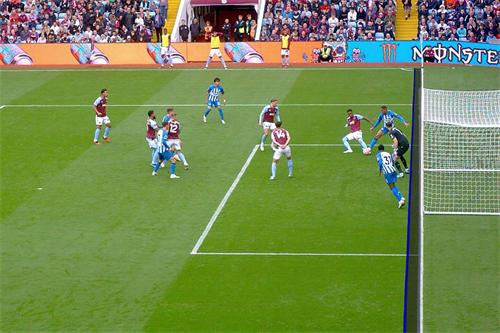Controversial VAR Decisions That Shook Football Fans

Modern football is fast-paced and intensely competitive. "Hairline offsides" are becoming increasingly common, and misjudgments or missed calls occur frequently. To reduce such “injustices,” FIFA introduced VAR (Video Assistant Referee) technology in 2008, with the Premier League officially implementing it in the 2019–2020 season. Originally intended to improve decision-making accuracy, VAR has since become a source of frequent controversy. Many now question: Is it the guardian of fairness in football, or a disruptor of the game's rhythm and emotion?
VAR: Solving Problems or Creating New Ones?
The original purpose of VAR was to correct clear and obvious errors made by referees at crucial moments to ensure fairness in the game. However, in practice, the confusion caused by VAR seems to rival the issues it was meant to solve.
For instance, during a Premier League match in 2023 between Tottenham and Liverpool, a goal by Liverpool’s Luis Díaz was wrongly disallowed for offside, and VAR failed to correct the error in time. This decision sparked a massive outcry, leading the English referees' association to issue a public apology.
This was not an isolated case. There have been numerous instances where referees made controversial decisions even after VAR intervention, leading to widespread dissatisfaction among fans—sometimes even inciting chaos in stadiums. In the 2022 World Cup match between Portugal and Uruguay, whether Cristiano Ronaldo touched the ball with his head caused a huge stir. VAR’s “silence” in that moment was criticized as “selective blindness.”
Germany’s New Experiment: Referees Explaining VAR Calls via Stadium Broadcast
To enhance transparency and help fans better understand VAR decisions, the German Football Association launched a new initiative in 2025: in selected Bundesliga and 2. Bundesliga matches, referees now explain VAR decisions to the crowd in real-time via the stadium’s public address system. This approach draws inspiration from basketball (like the NBA) and American football (NFL), aiming to improve transparency.
Supporters of the initiative believe it brings referees closer to fans, reduces misunderstandings and speculation, and boosts the game’s credibility. However, some worry that referees may face increased psychological pressure when speaking publicly in noisy stadiums, which could intensify controversy rather than ease it.
Divided Opinions Among Fans: Fairness vs. Flow
Fans are clearly divided when it comes to VAR.
Some staunchly support the technology. They argue that rules are the foundation of the game—whether it’s a hairline offside or a slight touch, a rule is a rule. VAR, in their view, minimizes human error and makes the game fairer. For example, in the 2022 World Cup, a near-out-of-bounds assist by Japan against Spain was confirmed as legal by VAR, leading to a historic comeback and progression to the knockout stage.
Others, however, express dissatisfaction. They argue that football is a game of spontaneity and emotion, and VAR’s frequent interference—especially the slow-motion magnification of slight contact—leads to harsh punishments for non-deliberate fouls and alters the course of matches. They also criticize how VAR disrupts the flow of the game, ruining the natural intensity and making matches less enjoyable to watch.
While VAR has certainly improved the accuracy of officiating, football has always been more than just a game. It carries the emotions of billions, the cohesion of communities, and cross-cultural identity. In the pursuit of absolute fairness, perhaps we must also ask: Can the cold logic of technology truly coexist with the passion of football?
As we look to the future, will VAR mature into a balanced solution, or will it continue to be questioned? Can the referee broadcast system truly ease tensions? Football now stands at a crossroads, searching for a path that balances fairness with spectacle.
RECOMMEND FO YOU



